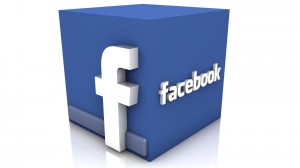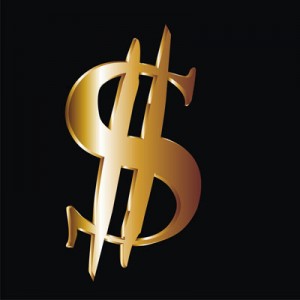 So I hear these questions all the time (blogs asking their readers, friends asking me, my own self asking its internal self) “Does _______ (social network) really do anything for me? I’ve had my opinions for a while, yet I’ve held back. Today I broke one of my own CARDINAL rules. Never spam. Never, ever, ever select your entire LinkedIn or Facebook or Twitter user/follower/connection database and send an invite/sales pitch/recommendation or so much as a fucking birthday invite. Don’t even wish a list a great day.
So I hear these questions all the time (blogs asking their readers, friends asking me, my own self asking its internal self) “Does _______ (social network) really do anything for me? I’ve had my opinions for a while, yet I’ve held back. Today I broke one of my own CARDINAL rules. Never spam. Never, ever, ever select your entire LinkedIn or Facebook or Twitter user/follower/connection database and send an invite/sales pitch/recommendation or so much as a fucking birthday invite. Don’t even wish a list a great day.
Don’t. Do. It.
Why I did it today I can only chalk up to a Class-AAA brain fart. I received one of these messages, knew it was legit, signed up for the site (Referral Key, which looks like a new version of LinkedIn but more proactive in sending out kudos and referrals for your counterparts to get them noticed). And then it wanted me to connect with four more people. And it provided that luring LinkedIn button. And I bit. Like the fat, old, never been caught once lunker fish that’s waaaaaay too smart to go for some man-made lure, I took the bait.
The funny thing is, aside from the sick feeling I had just a moment after I hit the OK button, I was actually somewhat surprised to immediately receive emails that (among other things) wanted to know how I found them.
 We’re connected on LinkedIn, you moron, is what I thought. I tried to be more humane with my answers since it was I who was in the wrong, regardless of the complete idiocy of these respondents. I actually had three people respond (paraphrasing), “I’m a writer, I don’t do sales or have clients.”
We’re connected on LinkedIn, you moron, is what I thought. I tried to be more humane with my answers since it was I who was in the wrong, regardless of the complete idiocy of these respondents. I actually had three people respond (paraphrasing), “I’m a writer, I don’t do sales or have clients.”
Wow.
I mean WOW.
I couldn’t resist responding to these amazing articles of marketing ineptitude.
Social networks have their place for writers. I think they are invaluable in establishing your name (i.e. your BRAND). What bothers me is they could be so much more. I’m going to ask a question and you may feel free to consider it rhetorical or I hope you’ll respond in the comments. But you have to be brutally honest.
Of all my connections on _________ (social network), the % breakdown of people is:
1) I know them very well; personal connections and colleagues but not clients (i.e. customers of my books more than just buying because they know me) ___%___.
2) I’ve never met them in person, but we share information, as in peers (other authors, bloggers, etc). ___%___.
3) Readers who wait for my next publication (i.e. sales base/customers). ___%___.
4) Couldn’t pick them out of a line up (or even by name). ___%___.
 I’m being as honest as I can, and I think the numbers are close enough across the various social network platforms to give one answer. I know some people use the networks more efficiently, say using Facebook for family and friends (with, perhaps, an author page). I’m talking about networks you’re mostly a part of because you are a writer and hoping your presence there will, ultimately, do something positive for your sales, reputation as an artist, etc.
I’m being as honest as I can, and I think the numbers are close enough across the various social network platforms to give one answer. I know some people use the networks more efficiently, say using Facebook for family and friends (with, perhaps, an author page). I’m talking about networks you’re mostly a part of because you are a writer and hoping your presence there will, ultimately, do something positive for your sales, reputation as an artist, etc.
I’d say of the literal thousands I am connected to across Facebook, Twitter, and LinkedIn (author; I also have a profile for my “day job”, and that one is almost exclusively people I have worked with, interviewed with, or some other direct contact).
1) 5%
2) 5%
3) Unknown, but very likely less than 1%
4) Close to 90%.
Now that sounds like the social networks would be completely useless, even for establishing a presence and that important “brand name”. I don’t believe so, because of the 90%, there is still a significant number of people you may not know that know you. Some of those could (and likely do) also fall into category #3—it is just hard to tell.
 I can say you this: with the exception of a few online website businesses that have very well-vetted READER lists, tweeting, posting on Facebook, and adding all of my book info, personal profile, etc. on LinkedIn, have done less than nominal good when it comes to sales. I’m not saying you shouldn’t get on these networks if you are new, or that you should stop using them if you are established—I think they are a necessary evil, so to speak, in the overall, umbrella of becoming known.
I can say you this: with the exception of a few online website businesses that have very well-vetted READER lists, tweeting, posting on Facebook, and adding all of my book info, personal profile, etc. on LinkedIn, have done less than nominal good when it comes to sales. I’m not saying you shouldn’t get on these networks if you are new, or that you should stop using them if you are established—I think they are a necessary evil, so to speak, in the overall, umbrella of becoming known.
But the problem comes in when the author figures out they can’t be twelve people at one time. Time is by far the most valuable asset a writer can own, aside from talent and work ethic. I know so many people who are online (i.e. Twitter and Facebook) almost every waking moment. I’m not saying that’s a terrible thing; that is something only you can evaluate. I can, however, tell you that I cannot find a significant reason to spend more than a necessary amount of time tweeting and posting on Facebook (the latter, which, I feel has never been a very good business platform and has not evolved much beyond sharing photos, vacation news, and that’s about it).
There are a lot of people who feel differently (and the 4-5 social media icons next to almost every well-known company’s ads in magazines and on television (or on their websites, of course), shows that major corporations believe they must be “connected”). I say it gives them curb appeal only, and the biggest advantage to having a large number of (followers, friends, connections, etc.) is more of a statement than a collection of consumers vying for your industry’s product (for authors, books).



The trick to social networking is to socialize. I’ve picked up half a dozen books from authors solely because I had a great conversation with them on twitter. They didn’t ask me to read their book or even mentioned their book once.
I’m more willing to help promote authors that treat me like a human being and not a “client”. I really hate authors that do nothing but spam twitter with 5 star reviews of their own books. I like the quirky status updates and I especially like authors to reply to me if I tweet them. Be a people person and people will remember you and when they remember your name at the bookstore, you just gained a sale.
I try to promote other authors more than myself (or at least equally, depending on what you consider promotion). I promote interviews done on my blog and favorites I’ve done with others on their blog. I figure that’s a two-way kind of deal. That said, you really are making the point that social media is not a great selling mechanism. You said it yourself; you like to socialize and if you more or less like or befriend and author, you end up reading their work. Can you imagine telling Coke or Pepsi “if you chat with me, get to know me, and I like you, I’ll buy your product.”?
I’m not being facetious or sarcastic. It’s a fair comparison. I believe more people than not are like you—they want to SOCIALIZE on social media, which makes it a terrible place to sell books. No author can make a living selling books to online friends. Sell a few books? Sure. But it seems to me the overarching attitude I seem to be seeing/reading is that people dislike being “sold to” on social media. Well I dislike being sold to during commercial breaks on my favorite programs, but I also realize businesses have a need (and public companies a fiduciary responsibility) to advertise. Your feelings on what authors should and should not use Twitter for are pretty representative of what I’ve seen, which means authors better be spending more time getting creative with their blogs and tweets and with finding better places to straight out advertise. 🙂
Thank for jumping in the pool, Lizzy!
I don’t read every post you come out with, but I stop by often enough that I would consider myself part of your less than 1%, at least for your blog. Haven’t read any of your books yet, but that’s only because I haven’t asked if you’d like a review. (That’s a subtle hint)
Of course, I don’t usually come to your blog because of Twitter. However, since it’s usually because of Triberr, let’s call it the Twitter umbrella. If my time on Triberr is short one day, I may see a tweet about your post the next day on Twitter.
Also, I’ve contacted authors via Twitter to ask if they would be interested in me reading and reviewing their book, so I say some selling on social media can be a good thing. But you have to present it in a likable way. I contacted one author because I loved her blog posts that were indirectly about her book. Call it indirect selling.
Instead of just saying “here’s my book,” give people a reason to check out a post about your book, and some may bite. But that shouldn’t be the only thing you do on social media. You should promote others and socialize.
And the follower count is a numbers game. The more people you follow and get to follow you back, the more likely your readership will grow. Of course, you may have to follow a thousand people before you find one new reader. That’s OK. The other 999 may lead to things in the future. If not, they at least allow you to follow yet more and more. That’s my philosophy anyway.
Ahem (trying to look as if he didn’t just read this in a comment): Mark, would you care to review one of my books? In all seriousness, Blood Land is currently free on all platforms excepting Nook (where it’s 99-cents; B&N doesn’t price-match, apparently, so I priced it as low as I could). If you want a physical copy, email me your address; if you need some other format or a different book, do the same, we can get it worked out. 🙂
I like your commentary about the blogger’s “indirect selling”. My issue with social media is that no matter what I’ve tried (hard selling, soft selling, indirect selling, promotion of others, blogging about writing, etc.) I’ve never seen an appreciable rise in sales due to anything I’ve done on social media. It’s like Coca Cola (to continue with a company I mentioned in response to Lizzy):
Do you think they make their quarterly sales quotas by tweeting or buying million dollar ads during prime time television? That’s rhetorical. I sell books when I purchase quality ads with sites that equate to “prime time television”. Not tweets. Of any kind. Never have.
That said, and as i intimated in my blog, social media is definitely where beginning writers (i.e. first time in the marketplace trying to make a nickel) NEED to be. It’s through the socialization Lizzy talks about that authors become known (the biggest challenge for any author whose name isn’t Rowling, King, Burke, or Grisham. So it definitely has it’s place.
I agree that selling too much and too hard is not a great idea. But then again, when you have product you believe a reader would truly enjoy, you’re really trying to do them a solid (as well as make a buck). I never sent a tweet I didn’t believe in and that I didn’t think would benefit a reader if he or she were to click the link, sample and buy the book, and read it. Hard sell? Maybe. But as I said, I’ve tried every kind of approach and then some and I’ve never, not once, thought Twitter, Facebook, LinkedIn (where you’re not supposed to sell anyway), or even GoodReads has impacted my sales at all.
That’s why companies pay millions for thirty seconds during the Super Bowl. Ads sell product. Not tweets. 😉
Thanks as always for weighing in, you one-percenter.
Well, call me socially awkward. I didn’t find anything wrong with our exchange. At least I didn’t come out and directly ask if you’d like a book review. My comment in general was about the post. I’ve seen ones completely ignore the post and perform some social taboo in the comment.
I’ve downloaded Blood Land. You sold during a blog comment. Shame on you! Ha!
The best selling Indies tend to have several sources, though when I ask them, the sources are usually different. Most authors I’ve talked to don’t like ads because they haven’t worked for them.
As a book marketer, I would love to find that one power move. Advertising with The Masquerade Crew isn’t a guarantee, but there have been a handful of authors who have used us more than once. Maybe one day having a book on our site will be like prime time (as you say).
BookBub works. I just advertised Blood Land a little over a week ago as “free” and on Amazon alone I just passed 70,000 downloads. I held the #1 “Free” spot for two whole days (and am still, at any given time, in the top 50.
When I advertise a price drop ($3.99 to 99-cents) with them on their Mystery/Thriller one-day email blast, I normally sell 1500-2000 copies. The problem is, they keep upping what they charge to the point where the author barely breaks even and they take all the dough. Pisses me off. But they have the Golden Goose email lists, trust me. And I’ll do more ads with them. I just booked one for next month (authors can only advertise once every 30 days and a particular book once every 90). The reason it’s still worth it is that I normally get close to or into the Top 50 Bestsellers on Amazon, and stick around in the Top 100 for a week, and when you do that, Amazon starts sending you out in their emails, given you a little free promotion (that goes a long way).
“Time is by far the most valuable asset to a writer” You said it – not me. Except that I agree. So should a writer only use those precious hours to write? No way! I’ve gone the route of Social Media, same as yourself, and we both know it’s value. I’ve never expected any amount of sales from my networking, but I do expect to make useful contacts and hopefully work that into having new friends. I feel that 50 new connections that recognize my name, interact with me often and care about my success is a great start to having that base any author needs to success. From 50, I’ve found another 50 and so on. Slow and easy – maybe – but forward.
I do think that there comes a time when an author must re-balance the amount of time spent utilizing social media versus both other mediums and creating new work. And it’s different for every author, so there is (unfortunately) no blueprint to success. Thanks for commenting, Mimi, and sharing your perspective. 🙂